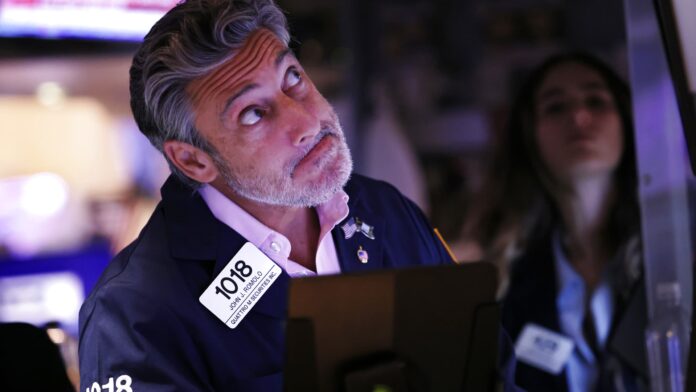U.S. Treasury yields continued to climb higher on Wednesday as investors digested the previous session’s dramatic market route triggered by a hot inflation reading.
The yield on the 2-year Treasury, the part of the curve most sensitive to Fed policy, was trading 1 basis point higher at around 5:00 a.m. ET to reach 3.773%, at one point hitting as high as 3.805%, its highest level since November 2007. Tuesday’s session saw it surge 17 points.
Yields move inversely to prices, and a basis point is equal to 0.01%.
Meanwhile, the yield on the benchmark 10-year Treasury note was up just over one basis point, trading at 3.439%. The yield on the 30-year Treasury bond was up just over half of a basis point at 3.517%.
Stock futures rose slightly on Wednesday morning after the higher-than-expected inflation reading on Tuesday sent the major averages tanking to their worst day since June 2020 and revived investor fears of greater rate hikes from the Federal Reserve.
August’s consumer price index report saw inflation rise 0.1% month on month. Markets had been expecting a lower reading due to a fall in gas prices, which dropped 10.6% from the previous month. A further 75 basis point rate hike from the Fed is being priced in by markets, but there is some anticipation that the next rate increase could be even higher.
Some traders are now expecting a full point rate hike from the U.S. Federal Reserve at its September meeting, according to the CME FedWatch tracker of Fed funds futures bets. Economists at Nomura now also expect to see a full percentage hike.
The inflation reading “caught the market off guard,” LPL Financial’s Quincy Krosby told CNBC. “The market had been expecting at least that we had leveled off — perhaps not moving downward but certainly not climbing higher. It was the wrong direction and the concern, of course, is always translated into what does this mean for the Fed.”
President Joe Biden, asked during a press pool Tuesday if he was worried about the inflation numbers, replied, “No, I’m not, because we’re talking about one tenth of 1 percent.”
“The stock market doesn’t necessarily reflect the state of the economy, as you well know,” Biden also said. “And the economy is still strong. Unemployment is low. Jobs are up. Manufacturing is good… I think we’re going to be fine.”
The mortgage market index and data on mortgage applications is due Wednesday, as well as crude oil and gasoline stocks data and the core monthly and year-on-year producer price index for August.
— CNBC’s Abigail Ng contributed to this report.


